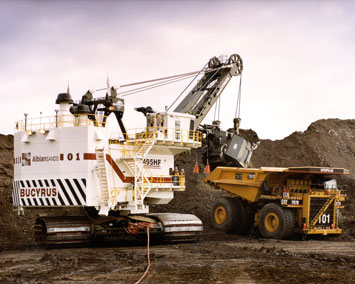You Cannot Pick And Choose Ethics
Posted by keith on 14th January 2009
I have a lot more time for small companies than big ones; one reason is that they do not generally conform to a corporate aspiration of global dominance (although I suppose the owner might have such dreams), they exist to serve a much smaller market and therefore are far more receptive to positive change. There is no chance of a corporation ever being sustainable, but there is every chance of a small company becoming something that can potentially be sustainable: it has to get rid of the profit motive before it can actually be sustainable in any sense.
Given that, it does make me extremely frustrated, not to say angry, when a very small business that says it is making efforts to be sustainable decides to choose only one facet of sustainability, makes a really big deal of it, and ignores the bigger picture. In effect it is choosing its ethics to suit a particular image: it is greenwashing, however innocuous that may seem.
One example I came across recently (and I bet you can thing of lots of them) is a very small American retailer of baby products. I won’t name them, because they are just one of many, and there are far larger baby product retailers who do far worse things — this is just to illustrate a point. This company have, as their Unique Selling Point (USP) the use of “non-toxic” materials:
While searching for safe feeding gear, I realized how limited the information was and how few options were available. What started as a growing awareness of toxic plastics, became a mission to care for my own children and newborn nephews. A highly motivated search team grew out of my concerned family members and now we work together to find the highest quality non-toxic baby care products for our children and yours.
I then came across an item on their web site which must have been in response to the concerns of a fairly large number of people, otherwise it wouldn’t have been displayed quite so prominently. This item explained why the vast majority of their products were made in China, emphasising that the products were no less safe for that, and still remained “non toxic”. I thought about this for a bit and, basically because I realised they were digging a hole for themselves, sent them this email:
I was very interested in your statement about Chinese made products, and very disappointed indeed upon reading it. I take it from what you say, that the only factor in you stocking a product is that it is toxin free, but does that really imply that you don’t care at all about the toxins that are created in the supply chain, and the fate of the sweatshop workers in the manufacturing zones where your products are created? Are you aware of the appalling state of health amongst children whose surroundings have been blighted by the runaway expansion of industrialization in the Chinese development zones? Are you aware that 90% of China’s electricity (which makes your products) is produced using high-sulphur coal, meaning that Chinese electricity produces around 40% more carbon dioxide than American electricity and produces vast quantities of toxic ground level gas (Mexican electricity is nearly as bad, being based around coal and fuel-oil, in case you were thinking of going there for your cheap imports)?
It may seem that you can turn a blind eye by thinking “at least the end-product is safe”, but a major reason the Earth is in the perilous state it is in, is that we have learnt to conveniently ignore whatever we cannot see; globalization has made this so easy. Just keep using your “non toxic” products, so long as you forget about the people at the other end of the supply chain, dying to make them.
The response was disappointing to say the least, and underlined my concerns: they basically washed their hands of the bigger ethical concerns, blaming the USA chemical industry and globalization for everything:
While I agree with some of the statements that you’ve made about the supply chain of products made in China. It always interesting to me how much brainwashing that we employ in the US. Do you really think that the chemicals are really made overseas? Most of the toxic chemicals are actually made in the US. In fact, we are producing chemicals that have been banned by every country on the globe and can’t even export some of our products to Mexico, which most people view as a third-world country. There is zero question that a world-wide clean up in necessary and we recommend it and wholly embrace it…
Which didn’t address my concerns at all. What about slave labour? What about carbon emissions? What about China’s huge, unregulated chemical industry (does he not realise)? Sadly it comes down to that USP again: we sell “non toxic” products, that what we do, and if we have to do it at the expense of other ethical concerns then that’s not our problem!
You cannot pick and choose your ethics, however passionate you feek about something: things don’t go away if you ignore them, and often they keep getting worse.
Posted in Company Policies, General Hypocrisy, Should Know Better | 1 Comment »














